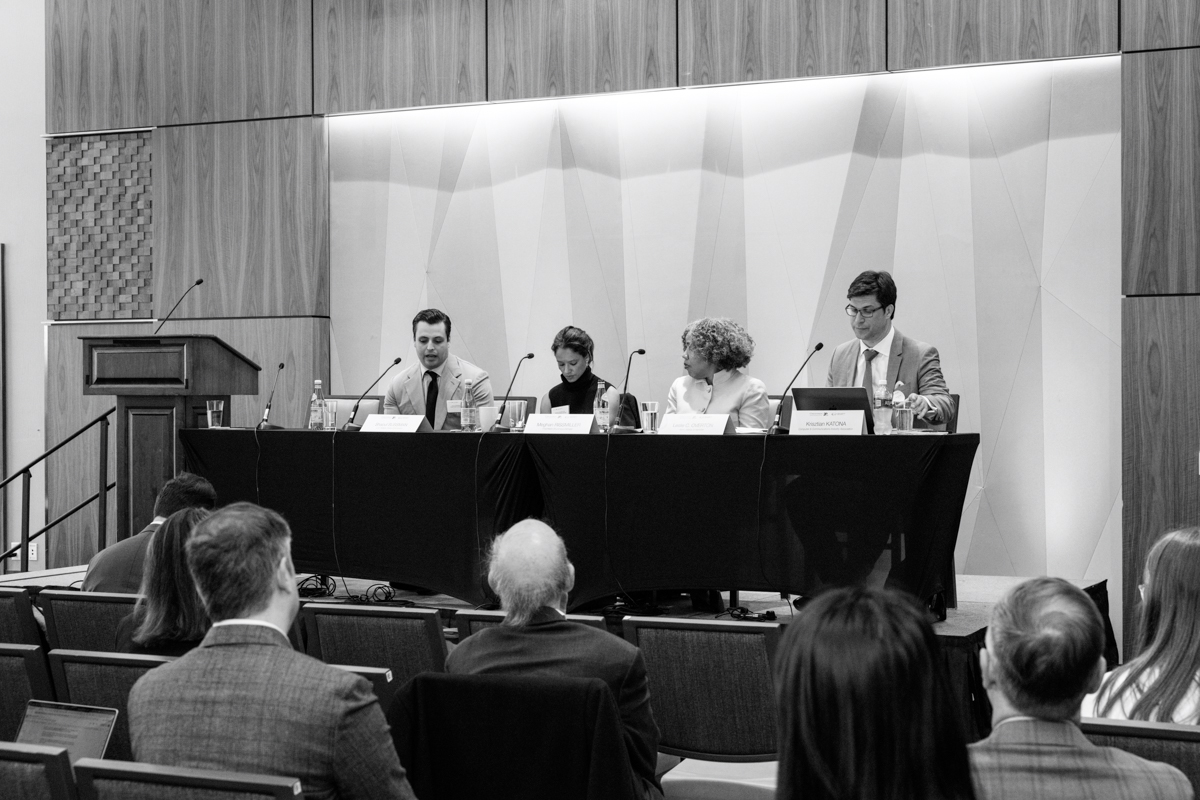Antitrust Experts Critique Antitrust Bills Promoting Other Interests

In recent panels and opinion editorials, leading competition economists, antitrust enforcers, and antitrust lawyers criticized recent antitrust bills, such as the American Innovation and Choice Online Act (AICOA), that de-prioritize the consumer welfare standard and economic analysis. Competition economists and antitrust lawyers have particularly criticized recent antitrust proposals that attempt to use antitrust as a Swiss Army Knife policy tool to address policy priorities outside the scope of competition policy, like reducing income inequality or protecting organized labor, instead of maximizing consumer welfare, competition policy’s primary concern. While these other policy priorities reflect legitimate interests, antitrust bills are not the appropriate solution and competition policy is not the appropriate arena. Instead, these bills are only harming what antitrust has tried to achieve. The competition experts included in this article have studied and influenced antitrust policy and enforcement for decades. They are adamant that the current bills are reminiscent of a troubling policy landscape from decades ago, and will lead to harmful effects, like increased inflation, hindered innovation, and disorganized legislation policy.
Joshua Wright, the Executive Director of the Global Antitrust Institute and a Professor at George Mason University Antonin Scalia Law School, discussed how antitrust activists are hoping to bring back ideas “that will exacerbate inflation in healthcare, groceries, consumer products and beyond.” He noted that antitrust laws were created to protect competition, and “competition benefits society – and consumers – by spurring innovation, improving quality, and lowering prices.” While companies may rise and fall, the competitive process ensures American consumers benefit. Which is why antitrust protects consumers from mergers or other business. However, more and more U.S. antitrust laws are attempting to “promote other interests like protecting less efficient competitors and organized labor and reducing income inequality,” which are not issues best solved through antitrust.
Wright stated in a recent article that the policy landscape is similar to that of 60 years ago, when the goal of legislation was to separate large firms and “prohibit all mergers and acquisition, assign burdens of proof to the accused, and control the design of products.” In 2022, the recently proposed antitrust bills are instead focused on breaking up large technology platforms such as Amazon, Apple, Meta, and Google. This is a concern because through these policies, legislators are weaponizing antitrust law to shape and plan all sectors of the economy, which will “undermine the competitive dynamics that have brought Americans countless modern benefits, including smart phones, fast and easy online shopping, on-demand ride hailing, easy-to-access streaming media, and a bevy of free services including email, maps, and video conference.”
Mark Jamison, Non-Resident Senior Fellow at the American Enterprise Institute, echoes Wright’s sentiment. He recently stated that many lawmakers believe “they can redesign – and in doing so improve – an industry, namely tech, that has risen to unprecedented levels of achievement by improving the effectiveness of every other industry and societal institution.” While these lawmakers believe they are promoting open markets, fairness, choice, and innovation, Jamison concludes policies like AICOA “would suppress innovation, turn valuable platforms into ‘dump pipes’ that consumers consistently reject, and invite further politicization of antitrust.”
In addition to reducing innovation, policies like AICOA limit competition in the marketplace, which leaves consumers to face higher prices. Wayne Brough, Policy Director of Technology & Innovation at R Street, recently explained how AICOA limits economically efficient practices like price discovery. He stated that by preventing firms from “fully participating in the market, competition is reduced, as is the amount of information generated about consumer demand. Head-to-head competition drives prices downward as producers incorporate new information about consumer demand and the production process to create products that more closely match consumer demand at the lowest price.” Brough continued saying that rivalry drives down prices, and “prohibiting some companies from engaging in rivalrous behavior eliminates pressure on prices, harming consumers and slowing the pace of innovation.”
While breaking up large tech firms is a familiar desire among antitrust activists, the recent trend of promoting other interests within antitrust is becoming increasingly popular. Dennis Carlton, professor at the University of Chicago Booth School of Business and former deputy assistant attorney general for economics in the Department of Justice (DOJ) Antitrust Division during the George W. Bush administration, discussed this trend during an American Bar Association webinar. When attempting to solve issues such as income distribution, pollution, or optimal privacy controls through antitrust, it only makes the process more difficult. While Carlton acknowledged these are important topics, the Federal Trade Commission and the Department of Justice are already challenged in determining the effects of price and innovation. He continued saying that there is plenty of dispute from past antitrust cases that adding in topics like income distribution and climate change are muddling true antitrust issues.
Instead of focusing on topics unrelated to antitrust, Carlton emphasized that the goal of antitrust is the “preservation and protection of the process of competition.” Doing so generally produces favorable outcomes, like lower prices in the short run and incentives for innovation and efficiency in the long run. However, Wright says, antitrust reform continues to focus too heavily on corporate size by proposing “reforms that would focus myopically on bigness, punish lower prices, and embrace the higher prices of their preferred cartels.” These introduced antitrust bills combined with historic inflation, “are bad for all Americans” and hurt the poor the most.








